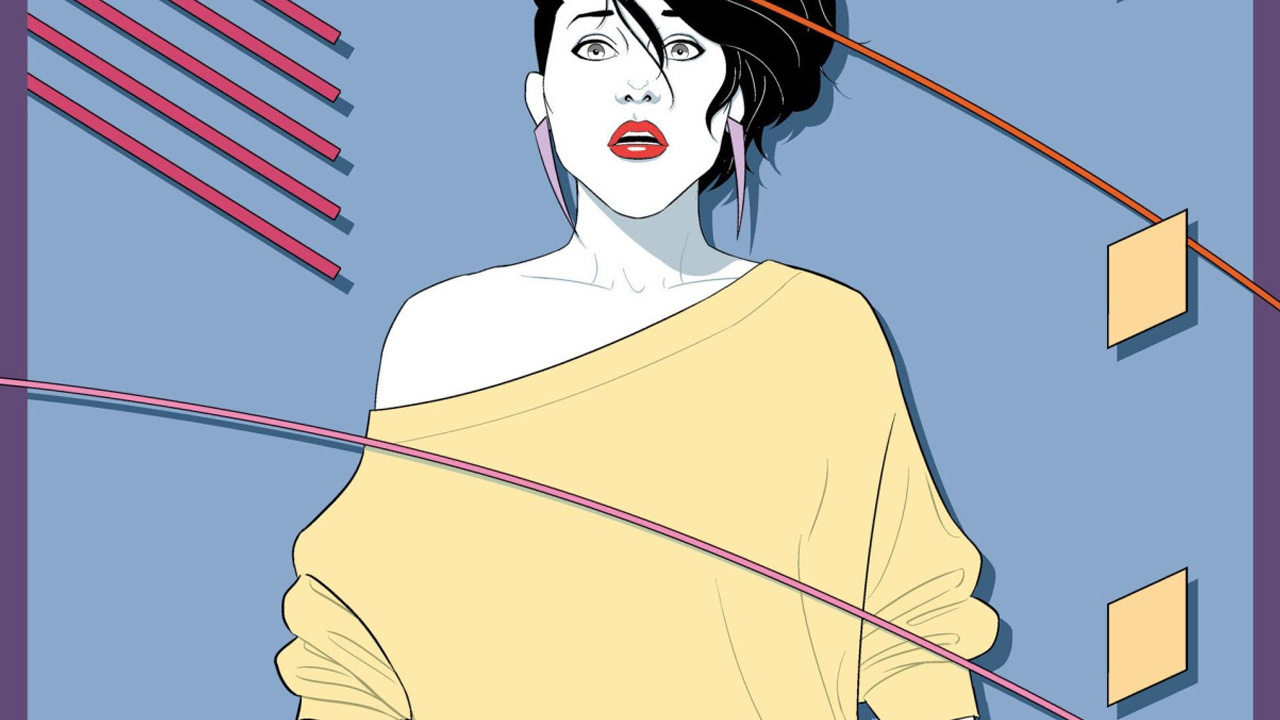
Pop music isn’t supposed to last. That’s part of the deal — for a brief, brilliant moment of time, an artist, a song or an album, will make you feel brilliantly alive, make you dance and sing and thump your steering wheel, only to be replaced by something else. Pop artists, like pop fans, are forever chasing a high, one that can take any shape or form from moment to moment. Maybe the package changes, but the bliss is the same.
Sometimes you can cheat, though. Sometimes pop lasts forever. It does in Phonogram.
Phonogram was a comic about pop, about music, about chasing highs and coming to grips with getting older. Created by journalist-and-critic-turned-comics-writer Kieron Gillen and artist Jamie McKelvie, it unfolded across three volumes, each with its own distinct vibe and focus, even as the characters and world stayed the same.
In Phonogram, music is magic — actual, literal magic that can utterly change people and transform reality, so long as you found just right record to play.
Of course, the secret to Phonogram is that it’s central conceit wasn’t fiction at all —hearing the right song at the right time can change everything about you, from fashion to outlook to social circles. Stack the CDs high enough and you can build a whole new you out of them.
The first volume of Phonogram, Rue Brittania, published in 2006, focused on Phonomancer (that’s what these music-magicians/critics are called in the Phonogram universe) David Kohl, on the hunt for the missing goddess of Britpop. It’s a weird, loose comic, one that may or may not have made up the rules of its magic as it went along and didn’t bother explaining them — but it was also a comic that told a story about a guy who loved Blur and Kenickie staring down a future which left those bands behind, thereby leaving him behind, something we can all relate to. What’s a guy to do?

The second volume, The Singles Club, debuted in 2009 and saw Phonomancers young and old intersect during one December night at a party with very particular rules. Smaller in scope but more ambitious in execution, it was kind of like Love, Actually if Love Actually was any good and had decent taste in music, each chapter following different characters as they dance to Blondie and Crystal Castles (no really, there’s a playlist) and break their hearts on the dance floor.

The final volume, The Immaterial Girl, kicked off in the final months of 2015 and just ended last week. It delved into the backstory of Emily Aster, a Phonomancer who sold off half of her personality for the chance to reinvent herself entirely and become powerful — only it backfires and she finds herself trapped in a dizzying maze of 80s music videos, a prison built of “Take On Me” and “Thriller” alike. It kind of mirrors Rue Brittania — while that first story was about how a stubborn refusal to change can stunt your growth and wonder where your life went, The Immaterial Girl is about how radical reinvention can burn everyone around you, but mostly hurts yourself.

Taken together, reading all of Phonogram is a bit like finding your old iPod isn’t just loaded with all of your favorite tunes, but also the emotions that came with them. Something more powerful than mild embarrassment or nostalgic glee. Something a bit more profound and maybe even sobering.
Each volume was released at a different time and referenced its predecessors, resurrecting the ghosts of pop recently past through the characters who cockily swaggered through its story, steadfastly refusing to believe that their time would ever come to an end (“Can’t Imagine the World Without Me,” crowed Rue Brittania‘s second issue, riffing on a ’90s Echobelly track). Because that’s how music makes you feel: Somehow more alive, more pure in your joy or melancholy or angry rebellion, if only for a few minutes at a time.
With The Immaterial Girl now complete, Phonogram is essentially over. The creators have moved on to the excellent and similarly music-centric The Wicked and the Divine.
Phonogram is post-pop, it is looking back at the person you were when you listened to The Smiths incessantly or really got into post-hardcore and wondering where that passion went, if it was really any good. Phonogram says, with searing, clever writing and beautiful, beautiful art, that, hey, the power music has is real and special, but maybe you were a bit of a shithead then, yeah? Maybe you needed other people more than you needed The Strokes, or LCD Soundsytem. Or maybe you needed other people just as much as you needed The Strokes or LCD Soundsystem.
Pop music isn’t supposed to last, and people aren’t really supposed to stay the same. Sometimes, pop’s trajectory and your life collide and tangle in powerful ways, ways that might be embarrassing in hindsight, but they were important. It meant something for you at the time, and that’s what matters. Pop is forever the present, a place where regrets and plans don’t belong. That’s how Pop works.
I don’t know if that’s how Phonogram works, though. I suspect Phonogram cheated.